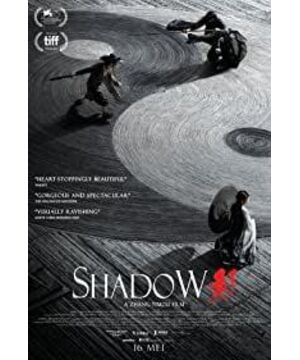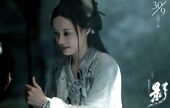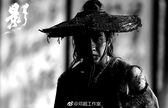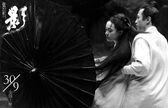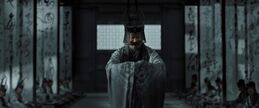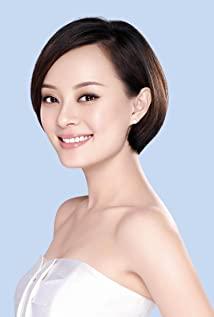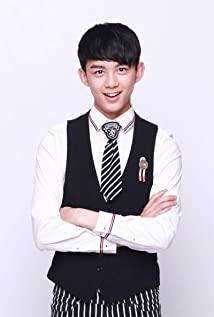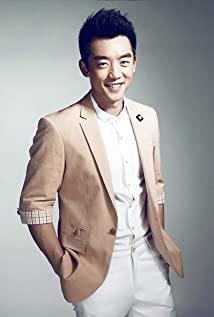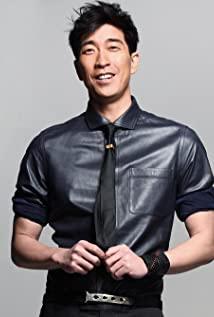Whether "Romance of the Three Kingdoms" or "Three Kingdoms", there is a puzzle.
With Zhou Yu's talent, why not oppose Sun Quan?
Zhou Yu was a famous general in the last years of the Eastern Han Dynasty. He was handsome. He was a "feather-fan and lunkerchief", a "eternal figure" and a handsome talent. The Cao family rushed back to the north, and from then on, laid the foundation for a three-part world. However, as the chief governor of Wu, why is he so loyal? Haven't you had a little Jiujiu in your mind?
Zhou Yu was the same year as Sun Ce, they were the same age, had a very good relationship, and worshipped their mother. "Three Kingdoms·Zhou Yu Biography" records: Jian Zi Ce and Yu were in the same year, and they were friendly and independent. Yu was the prefect of Danyang from his father, and Yu went to save him. Hui Ce will travel east to Liyang, and travel to Liyang to report to Yu, and Yu will welcome Ce. Ce Daxi said: "I get Qing. Harmony." Then he pulled out from attacking Hengjiang and Dangli.
In the first year of Chuping (190 years), when Sun Jian sent troops to defeat Dong Zhuo, his family moved to Shu County. Zhou Yu, a Shu native of Lujiang, immediately gave the large house to the south of the road for Sun Ce's family to live in, and went to visit Sun Ce's mother. Zhou Yu and Sun Ce had a very close personal relationship with Sun Ce and made a proper relationship. At this time, Zhou Yu was the host and Sun Ce was the guest, and the two were on par. In the second year of Chuping (191), after Sun Jian's death, the 17-year-old Sun Ce began to lead his father Sun Jian's pawns. Zhou Yu's uncle Zhou Shang was the prefect of Danyang, and Zhou Yu went to pay a visit. Sun Ce went to Liyang (now northwest of Hexian County in Anhui) and wrote to Zhou Yu, who immediately led his troops to greet Sun Ce. Sun Ce said very happily: "I have you, and the big thing will be done. Then I attacked Hengjiang and Dangli, and all won. In the third year of Jian'an (198), Zhou Yu returned to Wujun (now Suzhou, Jiangsu) via Juchao. When Sun Ce heard that Zhou Yu had returned, he personally greeted Zhou Yu and gave him 2,000 soldiers and fifty horses. People called him Zhou Lang when Zhou Yu was 24 years old. Sun Ce wanted to take Jingzhou, and Ren Zhou Yu As the defending army, leading Jiang Xia prefect, Zhou Yu followed Sun Ce to attack Anhui and won victory. At that time, he had two daughters of Gong Qiao, both of whom were super beautiful women. Sun Ce, as the lord, could completely consider Er Qiao as his concubine. , But he still married Da Qiao himself, let Zhou Yu marry Xiao Qiao, to the point of dividing women, the relationship between the two is to such an extent. Attack the Anhui and pull it out. When there is a bridge between the father and the daughter, both of them are of national beauty. Set Zuna Bridge and Yuna Bridge.)
Sun Jian, who was able to conquer the Sun family, died early, and Sun Ce died early. He died at the hands of an assassin in the fifth year of Jian'an (200 years), at the age of 26. The power of the Sun family was passed on from Sun Ce to his younger brother Sun Quan. Compared to Sun Ce's tall and mighty man, he was on the front line. Sun Quan was just a white-faced scholar who could not go to the front line. He was only 18 years old. He was only 18 years old. He lacked prestige and credibility. Zhou Yu's talent is no different than Sun Ce, how could he be willing to obey orders from a weak boy? This question has existed since ancient times, and there is no solution.
The "Three Kingdoms: Sun Polu's Biography" records: Chuangzhi, please Zhang Zhao and others say: "China is in chaos, the husband is in the Wu and Yue people, and the three rivers are solid, it is enough to see success or failure. The public is good, my brother! "Call the right to wear the seal, and say: "Let the people of Jiangdong decide the opportunity between the two Chens, and compete with the world, and the Qing is not as good as me. I am not as good as me. "In Sun Ce's view, he and his younger brother Sun Quan each have their own strengths, and Sun Quan is also a great talent. I can govern the country in battle, so he hopes that his subordinates can help him. Zhou Yu was able to turn his loyalty to Sun Quan desperately because it was Sun Ce's will to succeed Sun Quan. He believed in Sun Ce and was willing to abide by his last words.
However, this is only an objective analysis. As for what Zhou Yu thinks inside, no one knows. Moreover, Sun Quan is indeed a great talent. He suspects that people don't need to use people. It is he who appointed Zhou Yu as the chief governor, and even Sun Ce did not give Zhou Yu such a high position. There are less than one person and more than 10,000 people, and Zhou Yu's military and political power is actually enough to pose a great threat to Sun Quan's power. Moreover, after the Battle of Chibi, Zhou Yu keenly recognized that Liu Bei was a man who could do great things, so he suggested to Sun Quan that Liu Bei stay in the country of Wu, build him a big house, give him more beautiful women, and separate his heart. It is tantamount to abolishing him. After that, Guan Yu and Zhang Fei were also separated and arranged a place for each to prevent them from contacting each other. The troubles were eliminated. ("Liu Bei is a majestic posture, and the generals related to Yu and Zhang Fei must not be used for a long time. It is foolish to say that the grand plan is to relocate and prepare Wu, and Sheng is the palace building, and many beauties can play well; divide these two people, Each party has its own side, and major events can be determined.”) As a result, Sun Quan did not accept it. He believed that Cao Cao was recruiting talents in the north, and he was afraid that Liu Bei was “difficult to die”. Zhou Yu saw that nothing could be achieved, and then he advised me, let me lead the army into Shu quickly, kill Liu Zhang, annex Zhang Lu, and establish friendly relations with Ma Chao. When the West is consolidated, I will come back and join you together. The Northern Expedition killed Cao Cao and unified the great cause. This time, Sun Quan accepted. Zhou Yu planned to go back to Jiangling to pack up and prepare. However, he fell ill on the road and died unexpectedly. He was only 36 years old.
When Chief Governor Zhou Yu's correct suggestion was rejected, was his heart uneasy? Will you miss the days when you had nothing to say with Sun Ce? Have you ever thought of replacing it? Everything was left unanswered with Zhou Yu's sudden death. What's more, his last suggestion during his lifetime was adopted. If he did not die, follow the plan to cut through Shu, complete the unification of the south and the southwest, and then move northward, whether the history of the Three Kingdoms, and even the entire history, have been rewritten, it is really unclear. . Zhou Yu's insight into world affairs, his encyclical, is no less than Zhuge Liang's analysis of the general trend of the world in "Long Zhong Dui", not to mention that Zhou Yu was able to fight than Zhuge Liang and died so early, which is really jealous of talents. Moreover, his judgment on Liu Bei is also very accurate. He did not carry out the task of entering the land of Shu from the west, and finally let Liu Bei go, and he also established a Shuhan Empire, which hindered the expansion of the State of Wu and its dominance of the world. The death of Zhou Yu is really a pity, what a pity!
What does it have to do with "Shadow" directed by Zhang Yimou?
Yes, there must be!
Because this is the key to the interpretation of "Shadow" and the frame background of the whole story of "Shadow". The story of "Shadow" completely ignores the historical dynasties and tells a story that does not exist in history. However, Zhang Yimou still gave the answer at the end of the film. The film was adapted from "Three Kingdoms·Jingzhou".
The story of "Jingzhou" is of course the part of "Guan Yu lost Jingzhou". Yang Cang played by Hu Jun is actually Guan Yu, while Yang Ping played by Wu Lei is Guan Ping in history. The Jingzhou in the film is Jingzhou. Guan Yu made a Qinglong Yanyue Sword, a folk god of war. Yang Cang also made a big sword, and he was invincible, and he has never failed in the sword. If an equal sign is drawn between Yang Cang and Guan Yu, the character of Yang Cang played by Hu Jun and his skills will suddenly become clear. It turns out that Hu Jun played a different kind of Guan Yu, with both form and spirit. Yang Cang is not a villain in the film, but a professional soldier, powerful and confident. Of course, it is inevitable to be careless if you are too self-confident.
Guan Yu was a little proud and complacent in guarding Jingzhou, "rigorous and self-sufficient". At the time of Guanyu Town in Jingzhou, he was about 48 years old, and when he lost Jingzhou, he was already 60 years old and gray-haired. He has survived the four periods of Wu Guozhou Yu, Lu Su, Lu Meng, and Lu Xun alone. From the prime of life to old age, laxity and even arrogance, human nature is inevitable. But mistakes will be slapped in the face, and the fate of failure and death must be assumed, even if it is a Valkyrie.
Originally, in order to maintain the alliance between Wu and Shu, Sun Quan wanted Guan Yu's daughter to be his daughter-in-law. "First, Quan sent an envoy to solicit Guan Yu's daughter for his son, and Yu insulted her envoy, not allowing marriage, and Quan was furious." Originally, Sun Quanwei and Liu Bei fought against Cao Cao (also for political purposes), and married his little sister, Sun Shangxiang, to Liu Bei, who is a bad old man. He married Guan Yu’s daughter as a daughter-in-law. This was a clever political marriage, and Guan Yu should also be married. Weigh the pros and cons with the overall situation in mind, and even if you disagree, you can politely refuse. However, Guan Yu not only insulted his envoy, but also said, "Is my tiger girl worthy of a dog!" This is Guan Yu's unwiseness. The story about this marriage leave is also in "Shadow", but it was turned over and turned into Lord Pei's initiative to send the princess to marry Yang Ping, but Yang Ping rejected it and despised it. In the film, the princess Qingping played by Guan Xiaotong and Yang Ping played by Wu Lei, performed quite well. This reveals to us that actor selection is very important!
Huh? What is the relationship between Wu Guo and Zhou Yu when he took back Jingzhou from Guan Yu? At that time Zhou Yu had already died thoroughly, and it was clearly Lu Meng who did it. Zhou Yu died in the fifteenth year of Jian'an (210), and the loss of Jingzhou occurred at the end of the twenty-four years (219) of Jian'an. There was a 10 year gap in between. However, it has already been said that "Shadow" is an empty story, and "Three Kingdoms" only provided inspiration and a new story was compiled on this basis. Its framework is based on the state of Wu, focusing on the relationship between Zhou Yu and Sun Quan, and then adding Jingzhou to combine the two stories in time and space into a whole new story. And the core of the story is not to accept Jingzhou, but the intriguing relationship between the emperor and his subjects.
In fact, Chen Shou, the author of "Three Kingdoms", was originally from Shu, and later went to the Jin Dynasty, and the Jin and the Wei Dynasty. On the whole, he was familiar with the history of the Shu and Wei Dynasty, but not so familiar with the history of the Wu Kingdom. What's more, before the book of The Three Kingdoms, Wei had Wang Shen's "Wei Shu", and Wu also had Wei Zhao's "Wu Shu", which can serve as his mirror. (The "Three Kingdoms" has 30 volumes of Wei Shu, 20 volumes of Wu Shu, and 15 volumes of Shu Shu. There is only a small amount of writing without reference. Chen Shou is really lazy.) In fact, many descriptions of Wu are derived from Wei Zhao. As an important minister of the four dynasties of the Wu Kingdom, Wei Zhao was familiar with Wu history, but his "Book of Wu" would inevitably be obscure and would be a taboo for the venerable. For example, "The Legend of Wu Zhu" avoided Sun Quan’s early actions in his succession. However, in the comments after the main story, some tails were revealed. Odd, the outstanding British man. So he can be good at the river table and become the industry of Ding Zhi. However, the sex is too taboo, and it is the result of killing, and it will be worse if you reach the end of the year." This is very clear. , "There is the wonder of Goujian" and "has too much sex". Under whom did he bend and what Goujian did? Isn't it just the period when you were partnering with Zhou Yu? At that time, Zhou Yu probably put on small shoes for him, but he endured it. At this point, "Shadow" is actually a restoration of history.
Wu Guo was changed to Pei Guo in the film, and Sun Quan became Pei Liang, starring Zheng Kai. The first half of Zheng Kai doesn’t make people feel so much, or even annoying. He is an image of a prodigal who doesn’t want to make progress. However, starting from the subsequent reversal, I suddenly discovered that this Peiliang is not simple, and Zheng Kai’s performance is also not easy. Simple. Peiliang, under the influence of Tzuyu's power, many of his actions are forced to act, for Tzuyu who can kill him at any time. Peiliang's prostitution and demeanor change, and Zheng Kai's performance is great. Sun Quan's humiliation and humiliation were cast alive and Gou Jianzhi's miracle was played. He was also very sexually jealous, and he repeatedly probed Ziyu's true identity. To put it bluntly, all the actors in "Shadow" are very good, and Zhang Yimou has a well-deserved reputation as a great director who can train actors.
Zhou Yu became Tzuyu in the film, starring Deng Chaolai. This character was divided into two again, transforming into a shadow mirror state. In order to play the two roles, Deng Chao first gained 20 pounds and then quickly lost 40 pounds. He tortured himself into a play lunatic. It's comparable to Christian Bale in Hollywood.
As for the relationship between Peiliang and Tzuyu, and Jingzhou, it constitutes the intricate character wrestling in "Shadow", which directly affects the development trend of the plot. There are definitely twists and turns, and none of them are fuel-efficient lamps.
As for the passage of the shadow Jingzhou going to recover Jingzhou, the shadow of Lu Meng flashed on Jingzhou's body again. The chief governor in the film is composed of Zhou Yu, Lu Meng, and even Lu Xun. In history, Lv Meng first claimed that he could not afford to be ill and deceived Guan Yu to transfer Jingzhou soldiers away. Then Lv Meng sent soldiers disguised as merchants to deceive the Jingzhou defenders and drove straight into the river, crossing the river in white. In this section, the film has been restored in a very simplified manner, and the interpretation is also quite good. It cannot be said that Shadow Jingzhou is Lv Meng, but at least the part of recovering Jingzhou is Lv Meng's possession.
Lao Mouzi put together a few deliberately from the Three Kingdoms and performed a new play, which was fairly well-fitted and well adapted.
Zhang Yimou has finally told a good story since he filmed "Hero" in 2002, which opened up the era of mainland blockbusters. For this story, I have talked so much nonsense on it, it's all foreshadowing, it's all about interpreting and understanding the background information of the character's direction.
Zhang Yimou is a famous director and photographer. In his films, never be afraid of ugly shots. Because it doesn't exist at all. The problem lies in the fact that often, the shots are too beautiful, but the story is so weak that they can't support those beautiful shots at all. This problem existed in "Hero", which intensified afterwards. Except for the literary "A Thousand Miles Riding Alone" and "Returning", all of his films over the years are not good-looking, just like bad ones. This makes those dazzling and ordinary shots all become bluffs, empty and boring.
In fact, Lao Mouzi is only a director, he is not a screenwriter. If you give him a good screenwriter and shoot according to a good script, you can make a classic film; and if you give him a bad screenwriter and shoot according to a bad script, it will only be an empty and bad film.
Therefore, Lao Mouzi’s classic works are often adapted from novels and escorted by well-known screenwriters, such as "Living", "Hanging the Red Lantern", "Judou", "Qiuju Lawsuit", "Red Sorghum" and "Returning". They were adapted from novels by Yu Hua, Su Tong, Liu Heng, Chen Yuanbin, Mo Yan, and Yan Geling, and were adapted by writers such as Lu Wei, Su Tong, Liu Heng, Mo Yan, Zou Jingzhi, etc., to ensure that the story is wonderful. Other works that are not worth seeing are basically rotten from the script.
Lao Mouzi, to put it bluntly, is a clever craftsman. Give him a good embryo and he can process good works. If the embryo cannot stand, the final product will naturally not stand.
This time, "Shadow" finally made Lao Mouzi meet a good screenwriter. The cast wrote that the screenwriter was named Li Wei. From the resume, this was Li Wei's first work as a screenwriter. It is really hard to comment on, and can only be said to be a promising girl. But she is not a newcomer. She already had a role in the film "Beijing Bastard" in 1993. Of course, Li Wei alone is not enough. "Shadow" is actually based on a novel. It is not "Romance of the Three Kingdoms" nor "Three Kingdoms", but the vernacular version of "Three Kingdoms·Jingzhou" written by Zhu Sujin. Zhu Sujin is a well-known writer and a well-known screenwriter. He has a good foundation.
With a good script, all that is left is Lao Mouzi's self-expression.
Photography, naturally I have nothing to say. This time, Lao Mouzi went very far. He almost abandoned western elements. From vocal music to art, they are all typical Chinese traditional cultural symbols. Lao Mouzi used enough Chinese elements to put together an exquisite and delicate work of art. Even without a wonderful story core, this shell is still stunning.
The process of watching "Shadow" is the process of browsing a long scroll of ink and wash, the intensity is light and light, the sequence is unfolded, and the clouds are steaming and the clouds are full of poetry and painting.
In the past few years, I often went to the Central Art Museum and the Rongbaozhai Gallery in Liulichang to see paintings and calligraphy, but later I went less. I really can't stand the so-called traditional paintings that are too sleek. Traditional Chinese landscapes pay attention to artistic conception. In the painting, the clouds are light and the clouds are comfortable, the sky is high and the water is far away. It is a realm of heaven, heart and moon. It is refined, but too many modern people have utilitarianism. Kitsch. The state of pretending, unfortunately, is full of flaws, it is really horrible. They often come in enthusiasm and go away again. If they can't afford the time cost, they slowly go away.
To put it briefly, Zhao Mengfu and Zhu Da, because they are both former survivors, so they can clearly feel the author's unwillingness to confuse in their paintings. The kind of arrogance and loneliness needs to be felt well. The so-called artistic conception means that the author's mood can be felt through the works. The current paintings are full of absurdity and boredom, but I feel the painter's frustration for fear that the world will not recognize him, and the sense of kitsch for fear of not being able to sell it.
Lao Mouzi's big and unreasonable blockbusters are just like the kitsch works of the secular painters mentioned above. The temperament shown in "Shadow" is by no means the same. Although the refined elements of traditional culture seem harsh everywhere, it doesn't hurt to look at it carefully. Many places complement each other well and are used just right. Like the piano and singing, the use of the piano and the zither, as well as the use of the flute in the film are wonderful, showing the essence of traditional Chinese music, long and long, with endless flavor.
Other traditional cultural symbols like calligraphy, tai chi, yin and yang, and gossip were all taken out by Lao Mouzi, and they were fully utilized, and they felt good.
If only these superficial articles are used to promote Chinese culture, it is not smart, this time, the core of Lao Mouzi's story has carried out a new interpretation of the essence of Chinese culture.
Previously, macroscopically speaking, the two climaxes of costume films were Li Ang's "Crouching Tiger, Hidden Dragon" and Zhang Yimou's "Hero". Both films were nominated for Oscars, and in the end the former was awarded and the latter failed. In fact, this does not hinder the status of the two films in Chinese film and television. "Crouching Tiger, Hidden Dragon" uses the shell of traditional Chinese culture and tells the core of a Western story. It wipes out the grievances and grudges in traditional martial arts movies. The bottom line is Li Mubai and Yu Xiulian, Yu Jiaolong and Luo Xiaohu. The two generations' choices about love and life respectively interpret the intergenerational differences that prevail in the world today. After watching Li Mubai’s tolerance for humiliation and Yu Jiaolong’s courage, they tell a story of human nature. This film is an attempt to internationalize Chinese culture, and it has succeeded; and "Hero" is not about the grievances and vengeances of traditional martial arts films, but the core collectivism in Chinese traditional culture, which talks about "the world" and The meaning of "great unification" for the family and the country, the individual's insignificance and powerlessness in front of the collective, even the strongest individual in the face of "the world" has to choose to give up and be forced to own beliefs, this film conveys It was an integration of Chinese culture, and ultimately fell short.
Speaking of it, "Hero" is more Chinese and more traditional. Because of this, Zhang Yimou was considered to have changed his banner, surrendered to the power system, and began to turn his butt to the meat-eaters. This was achieved through his becoming the chief director of the 2008 Beijing Olympic Games. From criticism to flattery, this kind of Zhang Yimou, while being hailed as a "national teacher", was basically shot down by the art market. The arrogant literary world is unwilling to accept a person with a charming bone.
Seeing that Zhang Yimou has gone farther and farther in the blockbuster market, and even made the so-called "Great Wall" movie. By this time, everyone was left with only ridicule and spit on Zhang Yimou. They all felt that he was completely old, walking all the way to the black, and when his luck ran out, he was completely finished.
Could it be that after the filming of "The Great Wall", the next Lao Mouzi is going to film "The Universe"?
However, (the most annoying thing is here,) Zhang Yimou made "Shadow". It was really unexpected, and suddenly became overwhelmed and caught off guard.
Following inertia to scold Lao Mouzi, or even scold "Shadow", they are all ignorant people who follow the trend. If you want to talk about this film, you really have to understand it first.
In my opinion, through this film, all ten Lao Mouzi have been resurrected!
Originally, "Spring, Ten Haizi" was a desperate poem by the poet Haizi, written on March 14, 1989, from 3 to 4 in the morning. Twelve days later, on March 26, 1989, he was killed in Shanhaiguan and committed suicide.
In spring, all ten Haizis were resurrected in the bright scenery and laughed at this savage and sad Haizi. Why have you fallen asleep for so long?
Haizi wrote in this way, detailing his inner struggles and pains. In the so-called resurrection, there must be death before Nirvana. In this poem, Haizi has revealed his heart to death and casts hope for the distant spring. However, there is no spring in his life, only endless darkness.
But Zhang Yimou is different. In this fall, with the release of "Shadow", a brand new Zhang Yimou is resurrected and rises to nirvana.
In the short review of "Shadow", I adapted Haizi's words and compiled a few sentences along the lines:
In the autumn, all ten Mouzi were resurrected in the bright market and laughed at the kitsch and sleepy Mouzi. Why are you sleeping for so long?
In the autumn, all ten Mouzi were resurrected in a long scroll filled with ink and rejoiced in this passionately created Mouzi. How did you come out so elegantly and break through the shadows?
These words are collected, and of course they don't have the poetic flavor of Haizi. The focus is on Zhang Yimou’s resurrection. The significance of "Shadow" has completely surpassed the "Hero" and returned to the spiritual core of Zhang Yimou, who was full of anger and criticism during the period of "Alive" and "Qiuju's Lawsuit", as well as unruly. Creativity.
In the blockbuster films since "Hero", Zhang Yimou has not consciously fallen into the grand narrative, pursuing the themes of the family, the country and the world. In "Shadow", he returned. This time, he returned to the subject of criticism.
In the film, borrowing from Tzuyu, I said a line: I have always been fascinated by strategy and conquest, but I have not tried to appreciate the beauty of the world. This sentence almost speaks out the core of the entire film, which is tactics.
The existence of people like Peiliang, Tzuyu, Jingzhou, Tian Zhan, and Lu Yan is a trickery at all times. What they want to win is the world, or countless gold. Maybe Jingzhou would be better, but he also has his own selfishness, he is for the beauty in his heart. Moreover, in the final open-ended ending, if he chooses to walk away and escape from the rivers and lakes, it would be a good thing; but what if he chooses to stay? Then, he became the biggest black-bellied man, no one.
With so many words at the beginning, what I wanted to talk about was the relationship between Zhou Yu and Sun Quan, and Zhang Yimou gave an answer. In Zhang Yimou's conception, Sun Quan wanted to get rid of Zhou Yu all the time. He pretended to be a fool and didn't care about his sister's life or death, all in order to deceive Zhou Yu, because Zhou Yu is the chief governor, which is too strong. And Zhou Yu only regarded Sun Quan as a puppet, and when the puppet was disobedient, it would have to be removed. Between the king and the tiger, the truth is true, the false is false, and the deception is all about maximizing their own interests.
Conspiracy makes one's heart broken, makes people confused and loses their nature. This is the worst part of Chinese traditional culture, and it is also the essence of "Twenty-Four History". Well, traditional Chinese culture is actually very bad and very bad. The appearance of "Shadow" is extremely gorgeous, but the inside tells the worst part of traditional culture. Gorgeous robe and crawling lice constitute a traditional China full of contradictions and tensions. And Zhang Yimou spoke it precisely.
Of course, the story may be that story, and these interpretations on the core may not be consciously discovered by Zhang Yimou. But it is this kind of carelessness that makes people better appreciate the beauty of external photography, and then can feel the terrifying and powerlessness of the core of the story while shocked.
However, "Spring, Ten Haizi" is a desperate poem by the poet Haizi, and it is the last splendor in his life. Of course, we do not hope that "Shadow" is just a glimpse of Zhang Yimou, but we hope that he can regain his skills and return to the creative old mouzi.
View more about Shadow reviews


